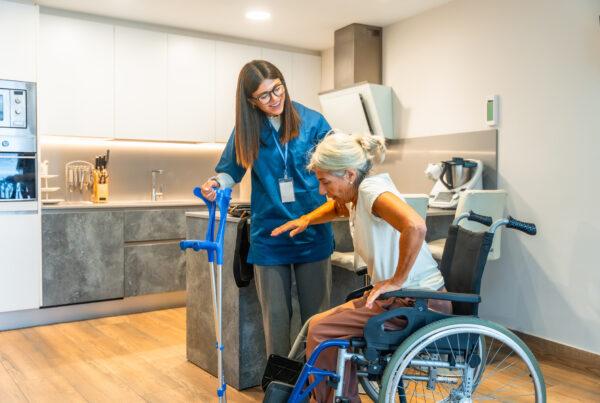Part of what makes a career in healthcare so rewarding is that it offers the chance to help others, often when they are most in need. Because of the nature of this career path, professionals working in this sector must often interact with clients. Whether welcoming clients in a warm and friendly manner as a medical office assistant or providing attentive and respectful care as a health care aide, each professional working in healthcare uses their interpersonal skills to put clients at ease and make a difference.
Read on to find out some of the client-facing skills you’ll need for a successful career in healthcare.
1. Communicating Clearly Is Crucial in Your Healthcare Career
Communication is a useful skill in both your personal and professional life, but it is particularly useful in a career in healthcare because it helps you connect with clients. Your communication skills can help put a client at ease, and help them feel welcomed and heard. For many clients who might be feeling stressed or worried about their health, your excellent communication skills can make a world of difference.
Healthcare operates on timeliness and efficiency, and in order for you to excel in the field, it’s important to be able to communicate clearly and concisely. Think carefully about the words you use, try to be respectfully direct when making a point, listen carefully to others, and make sure to double-check that the person you’re communicating with fully understands the information you’re trying to share. This helps prevent any misunderstandings and ensures that clients feel understood.

AOLCC prepares students with the skills they need to provide clients with quality care
2. Compassion Helps Healthcare Workers Connect With Clients
Healthcare workers often encounter many different people who have different concerns, perspectives, and opinions. A client-facing healthcare career means that you may have to address someone who might not see or comprehend a situation the same way you do, and it’s important to keep this in mind when communicating with them.
Understanding their needs will often require you to think and respond empathetically, meaning that you try to see the situation the way your client sees it. This gives you a better idea of where they are coming from mentally and emotionally and allows you to better anticipate their concerns and questions.
3. Knowing how to Welcome Feedback Helps Healthcare Professionals Improve
Receiving feedback, whether positive or negative, is an important part of improving the way you connect with clients. It can be difficult to learn how to take feedback positively, but it will help you look at the way you work more constructively, and draw your attention to tasks you’re performing well, as well as areas that you might want to improve. This will help you take your skills even further and continually advance your abilities.
It’s important to try and start practicing how you receive feedback while still completing your studies. The feedback you receive from your instructors or classmates during healthcare training can help you better prepare for constructive points from your employers, clients, and colleagues, and help pave the way to a stellar career.
Do you want to complete training for a rewarding career?






